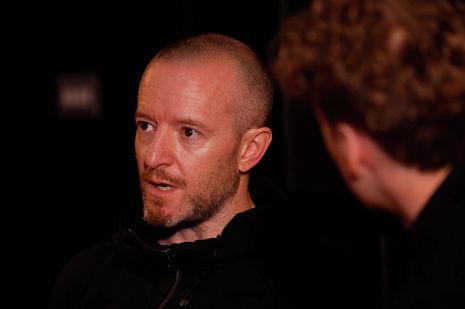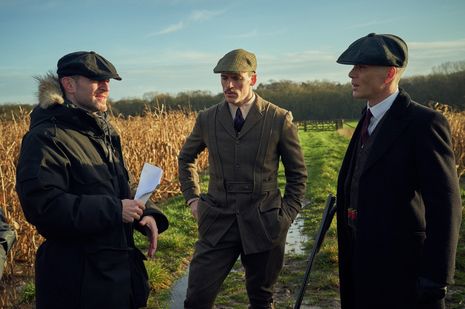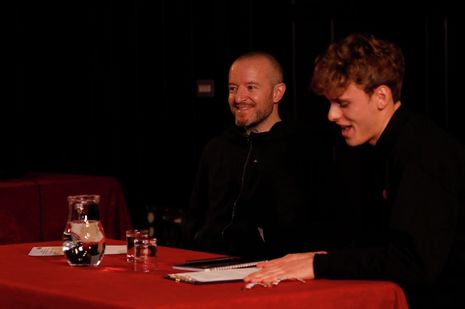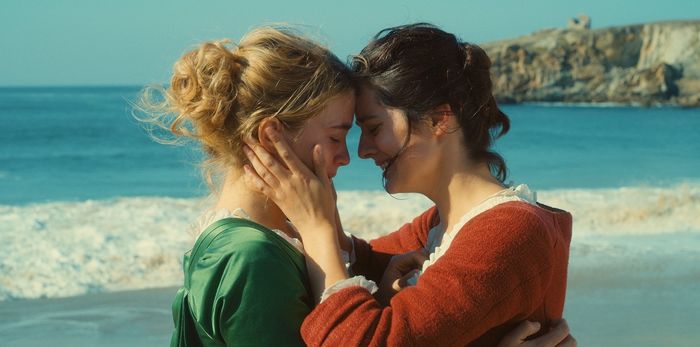Selectivity, passion and risk-taking: Meet the director behind Peaky Blinders series 5
Maria Pointer in conversation with director Anthony Byrne, on how he successfully brought “meaningful decision making back into TV production”

However you choose to de-stress, there’s no doubt that sitting down, switching off from the rest of the world and engaging in a good bit of TV is a warm comfort to us all in these ‘uncertain’ times. But looking forward, how will quarantine alter the ways in which we consume media?
At the end of April, the highly acclaimed series five of Bafta award-winning show Peaky Blinders hit Netflix, after its initial airing on the BBC last August. Back in March, at this year’s Watersprite International Film Festival, I sat down with Anthony Byrne, director of this series, to discuss the place of media in our society and how to bring meaningful decision-making back into TV production.
The first thing that is striking when speaking to Byrne is his passion, it radiates from him. To even the shortest of my questions I receive impressively detailed and enthused responses, conveying not only his sheer love for the profession but also a sharp insight into the industry. There’s a rawness to him; Byrne’s quick to do away with the “TV bullshit” that we so often see in churned out, production-heavy shows. He does not shy away from voicing his opinions and isn’t afraid of using the odd expletive, and I left the interview feeling distinctly inspired by his organic perspective. Notably, it is a clarity of vision, in seemingly every project Byrne undertakes, that allows him to create such cohesive pieces that just work.
"[What] is striking when speaking to Byrne is his passion, it radiates from him"
Following four seasons worth of global TV success with Peaky Blinders was no easy task, let alone when the story’s arc certainly felt like it had reached a peak. With a new director stepping up for each series, Byrne is honest to point out that it can be difficult at times to not want to simply blow “the other guy” out of the water with your own new take. But he is consistent in expressing that it was all about putting the show first. “I would always go, don’t serve yourself, serve the show” he tells me, and his attention to detail in doing so is plain to see. The show’s producers supported his decision to take on a different colourist for the series, having used the same one throughout series one to four. Moreover, halfway through production he decided to move post-house simply because the sound wasn’t exactly how he intended it to be – an unquestionably rare occurrence in TV production. For an industry so often intent on keeping things formulaic in order to avoid fluctuating popularity, it’s refreshing to hear these risks being taken, for no other reason other than a director’s creative vision.

Indeed, one of the features I found most impressive about Byrne’s direction was his deftness in both adopting that ‘typical’ Peaky style, but at the same time, working within that framework to still produce something fresh and exciting for an avid audience of now 6.2 million viewers. Peaky Blinders is known, in part, for its iconic soundtrack. From Laura Marling’s honeyed covers of Bob Dylan classics, to Queens of the Stone Age, IDLES and Royal Blood, all blasting out at dangerous volumes before returning right back to the haunting tones of PJ Harvey; the breadth of the soundtrack is astounding. But was it perhaps precariously teetering towards becoming too self-aware? Were those dramatic wide shots of the Shelbys striding through Small Heath paired with modern tracks becoming self-indulgent, aware of their very ‘Peaky’ nature?
This is an issue Byrne answers to. His choice to move to a commercial score in Series 5 was one of those artistic decisions that greatly pays off. In using Anna Calvi’s music periodically throughout the series, he established a consistency not only in sound but in emotional tone. “The sound of her guitar with Tommy Shelby for me is a perfect match” - and it’s true. The sheer versatility of her style demonstrated in the oscillation between bold, guttural tracks like ‘You’re Not God’ to more laid-back but no less punchy tunes like ‘Papi Pacify’ seamlessly gel with Tommy’s frequently unpredictable movements between strength and weakness in the series. “You have to be very selective in the commercial tracks you use, in anything, in order for it to be heard”.

This ‘selectivity’ that Byrne is pushing is something that pervades the series; I could write endlessly about the level of detail Byrne has applied to each of the decisions that he has made in his direction. He is visibly frustrated by those in the industry who take a ‘shotgun’ approach, speeding through shots to get more content than they need for post-production: “Nobody is thinking…I don’t want twenty shots, I want one great shot.” And he’s equally frustrated with audiences who appear to be increasingly detached: “In an age where we consume imagery all day long, Instagram, all around us, wherever we are, we don’t look at anything.”
"It’s refreshing to hear these risks being taken, for no other reason other than a director’s creative vision"
With episodes standing at almost an hour in length, Peaky Blinders resists this ‘binge-watching’ approach that is fast becoming a normality in how we consume media. The show is cinematic. It’s complex. There’s subtext, steady development and plotlines that aren’t left neatly tied. I don’t know of another series that can so stylishly pull off tense, extended silences like Peaky Blinders. And yes, this is largely down to continuously stunning performances from the stellar cast: Cillian Murphy and Paul Anderson as obvious standouts, plus Steven Knight’s novelistic screenwriting (“he’s like a poet” Byrne says). But at the show’s core, it’s the meticulously thought through artistic direction that carries this series. And that’s exactly what Byrne is doing it for: “You know, if you just put it on and you’re on the tube on your phone, yeah you get it whatever, but for me, I’m only making it for the five people who are going: I want to sit at home, I’m turning off my phone, I’m watching it on my TV and I’m getting it.”
Unlike the storylines that have come before, Tommy has been unable to defeat the main antagonist of the series, Oswald Mosley. He’ll be back for series 6, and in a Peaky Blinders first, Byrne will be back directing as well. “I will continue until I find a man that I can’t defeat”, Tommy states, but with delays to production at the moment, we’ll have to wait to see if Tommy truly has met his match. Whatever happens in series 6, I have no doubt we’ll see Byrne deliver it with sophistication and epic style.
Series 5 opened with a close-up shot of a smoking quarry. A single weed is centred in the frame. Byrne tells me this weed was nearly cleared away by the production team, but he decided to keep it. He says the Shelbys are like weeds: no matter what anyone does, they just keep coming back.
 News / Colleges charge different rents for the same Castle Street accommodation2 March 2026
News / Colleges charge different rents for the same Castle Street accommodation2 March 2026 News / News in Brief: waterworks, wine woes, and workplace wins 1 March 2026
News / News in Brief: waterworks, wine woes, and workplace wins 1 March 2026 News / Climate activists protest for ‘ethical careers policy’1 March 2026
News / Climate activists protest for ‘ethical careers policy’1 March 2026 News / Angela Merkel among Cambridge honorary degree nominees27 February 2026
News / Angela Merkel among Cambridge honorary degree nominees27 February 2026 News / Private school teacher who lied about Cambridge degree barred from teaching27 February 2026
News / Private school teacher who lied about Cambridge degree barred from teaching27 February 2026










